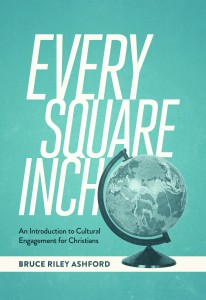Humans are the culmination of God’s good creation. They are different from God’s other handiwork. Indeed, the first statement about humans is that God made them in the image and likeness of God, male and female alike. They are like God in many ways, including but not limited to their capacities for spirituality, morality, relationality, language, rationality and creativity. Man’s likeness to God, John Calvin argues, “extends to the whole excellence by which man’s nature towers over all the kinds of living creatures.”
Because of these capacities, God could place the man and woman in the garden to have dominion over God’s good creation (Gen 1:26-27) and to work it and keep it (Gen 2:15).
Pause for a moment to reflect on the fact that God’s command to work was a command to change and even enhance what he had made. Adam and Eve were not supposed to leave God’s creation as it was, but to make something out of it. They and their descendants would be able to “work the garden” not only by cultivating plant life (agri-culture), but also by cultivating the arts, the sciences or the public square (culture in general).
What, then, does the creation narrative contribute to a discussion of culture?
1. Culture is not inherently bad.
Human culture is part of the physical and material world, which is part of God’s creation before the fall, and therefore is not inherently bad.
Human culture is not inherently bad.
We must not allow ourselves to fall into a form of neo-gnosticism, treating “spiritual” things as good and “material” things as bad. We may not take a dualist view of the creation, with its attendant impulse toward comprehensive cultural separation and withdrawal; to do so is to adopt a hollow and deceptive philosophy, to denigrate God’s good creation and, implicitly, to undermine the incarnation.
2. God commanded us to make culture.
God gave humans the capacities to create culture and then commanded them to use those capacities. God created humans in his image and likeness, thereby giving them capacities for spirituality, morality, relationality, language, rationality and creativity. Then he commanded them to use those gifts (e.g., Gen 2:15; Exod 31:1-11).

This post is a modified excerpt of Dr. Ashford’s new book, Every Square Inch.
Learn More





No comments have been added.